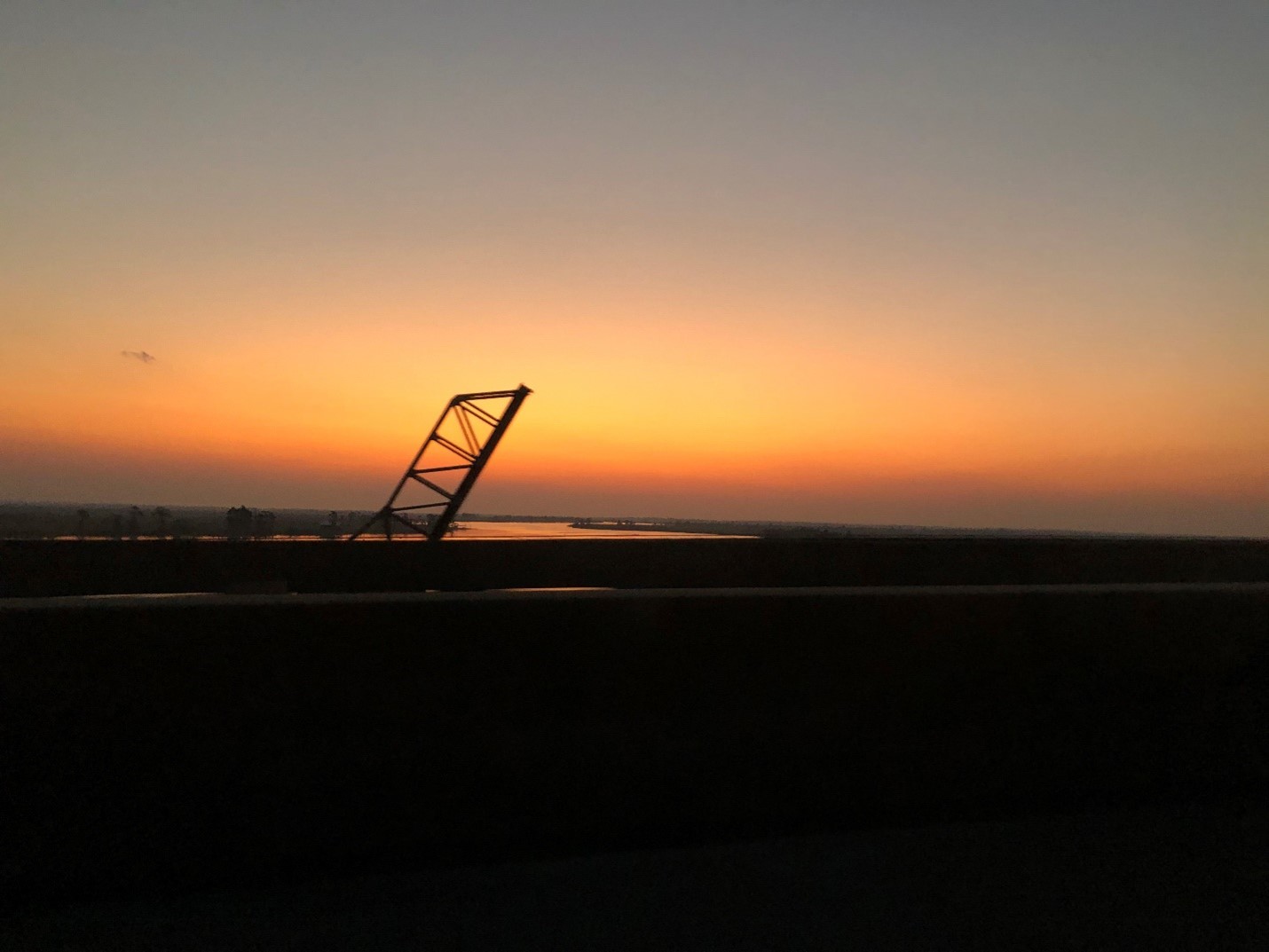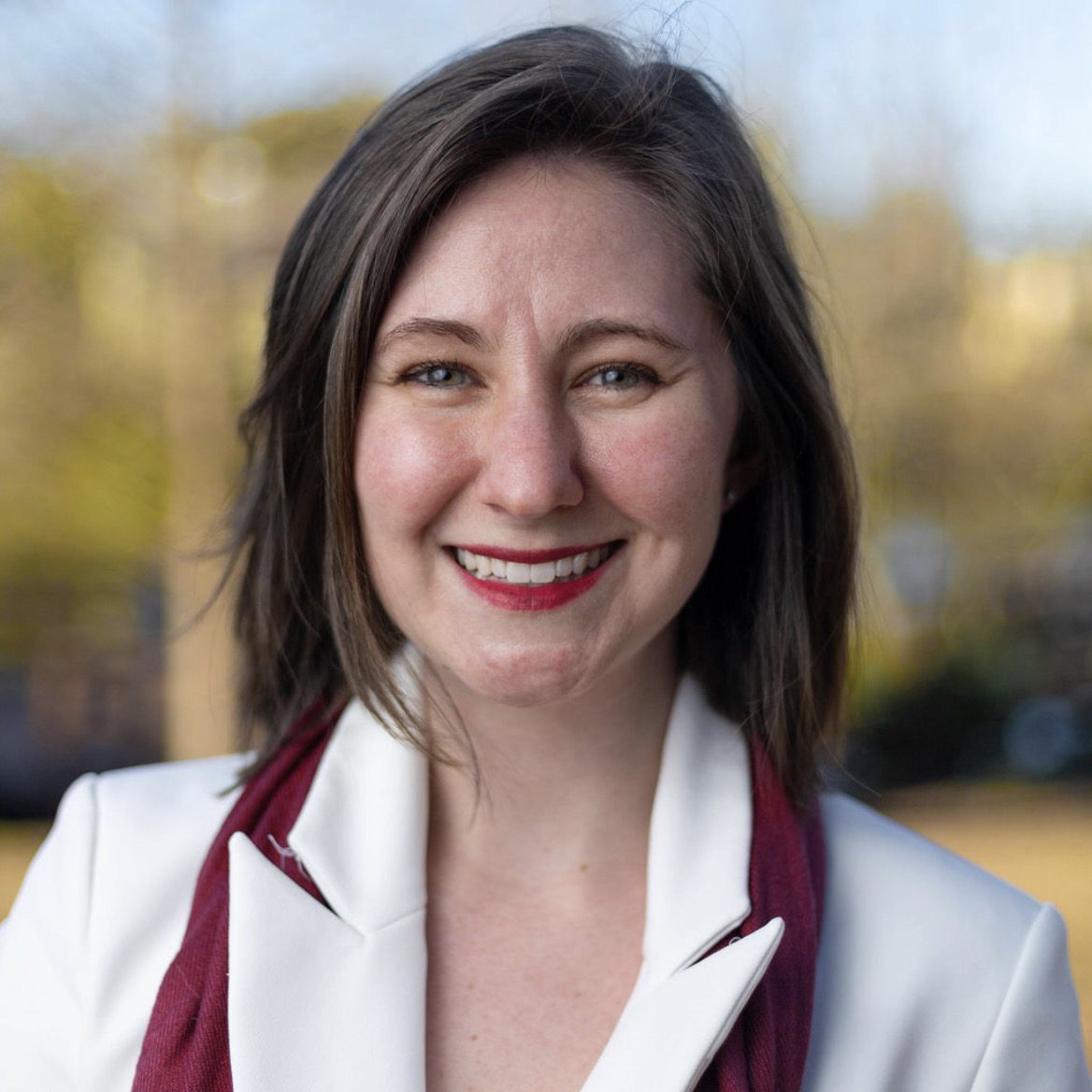What do we do when the world is on fire? We rest.
It was a Friday night in early December 2020, and I was in my car driving from Hammond to New Orleans, Louisiana. With the picturesque sunset, Cypress swamps, estuary and Louisiana-style elevated homes, the drive was what Jessica Dandridge, executive director of The Water Collaborative and a native New Orleanian with a Creole, Jamaican background […]

It was a Friday night in early December 2020, and I was in my car driving from Hammond to New Orleans, Louisiana. With the picturesque sunset, Cypress swamps, estuary and Louisiana-style elevated homes, the drive was what Jessica Dandridge, executive director of The Water Collaborative and a native New Orleanian with a Creole, Jamaican background who prides herself on her gumbo and dancing skills, would describe as “postcards from Louisiana.”
During the drive, I thought about how tired yet joyful I was to deliver gifts to a family and how everyone I’ve spoken with expressed that they were on the verge of exhaustion or tears. It was the juxtaposition of fatigue and joy that sums up being alive when you are constantly reminded that the world is on fire.
Holding the collective trauma from the COVID-19 pandemic, the individual instances when many of us were triggered by blatant racial injustice and the moments we felt closer than ever while not physically gathering are magical and exhausting. Now imagine how tired our changemakers are. For this reason alone it is necessary to offer more flexible funding resources, especially for disasters, for changemakers to continue their work.

Our Changemakers Are Tired
Our collective traumas come from a variety of sources. These moments include living through a global pandemic where gathering in person could be harmful. However, we still find ways to be together by sharing music from our porches, creating community fridges and by participating in mutual aid groups, like the one hosted by Imagine Water Works. They are moments when we collectively witness the murder of Black folks on social media and then amid a global pandemic, millions of us make signs, put on our masks and march to demand the world that we deserve.
Yes, our changemakers are tired. One of these individuals is Kellyn LaCour-Conant, a two-spirit daughter of Isle Brevelle, raised in Houston, Texas, who comes from a long line of guérisseuses and continues the family tradition through her work in restoration ecology. She sums up this experience perfectly: “How ironic is it that I work in food security and production but often struggle to find the time or energy to simply make myself a salad. This isn’t sustainable.”
What Changemakers Say They Need
It is moments like these when as a white, cisgender, heterosexual woman, I could tell you what I think is most needed. However, if we are going to advance equity and meet community-based organizations’ needs, we should ask them what they need and then do that work.
I asked Jessica and Kellyn to share ideas for how philanthropy can support rest for changemakers, especially amid multiple disasters. Here are their suggestions:
1. Fund operational and overhead expenses
Often, there is a cap on how much of a grant can be spent on these expenses. This limitation means that some organizations may struggle to fund indirect costs while meeting a grant’s requirements.
Kellyn encourages funders to take care of our changemakers. “Put money towards the wellness of the people who are already doing the work because inherently if they’re already doing the work, they can do even better work if they’re able to take care of themselves better as well,” she said.
Consider if the organizations you fund can pay their employees living wages, offer paid time off, health care and other benefits that contribute to their well-being. If they cannot, explore how you might help to fill those gaps.
2. Paid sabbaticals
Kellyn also recommends paid sabbaticals. She questions why academic institutions are the only ones who “provide funded chunks of time … with the security that you can do [work] or travel and refresh your mind, still be able to produce new knowledge and come back to a job.” She describes this as an opportunity for people to have restorative experiences that open them to engaging more effectively.
3. Equitable grantmaking
According to Jessica, “As a woman of color, I am expected to do more and get paid less,” and she describes how exhausting it is to be asked to “fix the whole world in two years for less than what we pay others.”
She challenges philanthropists to consider equitable grantmaking from two lenses:
a. Equitable distribution:
To invest in Black-led organizations’ well-being, investigate how little donors are paying organizations to do the work. A 2020 study conducted by Echoing Green and Bridgespan found that Black-led organizations’ revenues are lesser than those of white-led organizations within their applicant pool.
Once you understand who you are funding, consider how to invest your resources into historically underfunded organizations. For example, The Solutions Project made a clear commitment to invest most of its resources in leaders of color.
b. Processes:
Many grantmaking processes are designed by institutions for institutions with enough resources to hire staffers to write grants and handle the paperwork. As a result, these processes are inaccessible to organizations with few resources.
Evolving the process from proposals to interviewing potential grantees while assisting organizations with paperwork may be a more accessible way to offer funding. It also cuts down on the fatigue that is associated with the grant writing and reporting cycle.
4. Understand who you are funding
When we recognize and see parts of ourselves in others, it is easier to address the need collectively. Both Kellyn and Jessica spoke of finding ways to connect beyond how we are conditioned to communicate within the funder-grantee relationship.
Kellyn recommends that funders and grantees do a “calendar swap” to experience what it is like in the other person’s shoes. Other ideas included having field trips to see where your grantees work, who they work with and understand the “why” that motivates the work.
An Uncomfortable But Necessary Call to Action
You have made it beyond the introduction and through some strategies that many other grassroots community organizers recommend and for that, I am proud of you. Still, I want to ask more of you.
As a former philanthropist to a philanthropist, I urge you to consider and act on a future where we disperse funds – including those in response to disasters – with fewer strings attached. I know that is scary: There are a million questions about what your board will think, how grants will be reported and more. However, think about what we are losing if we keep focusing on our boards and trustees’ needs instead of our grantees’.
I know that this is not the call to action that philanthropists typically hear and that asking to give flexible funding likely produces discomfort. This call to action is more about listening and acting on what organizations and their leaders have been telling us between the lines about how tired, underfunded, overworked and stressed they are.
This is a call to rethink how our grantmaking processes stand in the way of good work, how we, as funders, might be the limiting factor to that good work. This is a call for rethinking our systems and incorporating rest as acts of resistance.
Let us fund and create brave spaces for changemakers to heal and refill their cups while the world is on fire. Let’s ensure that Kellyn has enough time to make a salad with the vegetables she harvests. Let’s pay Jessica for the inequitable burden we ask her to carry in changing our world.
